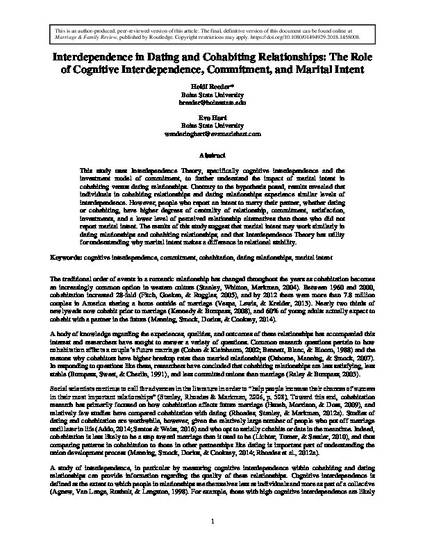
This study uses Interdependence Theory, specifically cognitive interdependence and the investment model of commitment, to further understand the impact of marital intent in cohabiting versus dating relationships. Contrary to the hypothesis posed, results revealed that individuals in cohabiting relationships and dating relationships experience similar levels of interdependence. However, people who report an intent to marry their partner, whether dating or cohabiting, have higher degrees of centrality of relationship, commitment, satisfaction, investments, and a lower level of perceived relationship alternatives than those who did not report marital intent. The results of this study suggest that marital intent may work similarly in dating relationships and cohabiting relationships, and that Interdependence Theory has utility for understanding why marital intent makes a difference in relational stability.
This is an Accepted Manuscript of an article published by Routledge, an imprint of Taylor & Francis Group, in Marriage & Family Review on March 2019, available online at https://doi.org/10.1080/01494929.2018.1458008
Available at: http://works.bepress.com/heidi_reeder/30/
